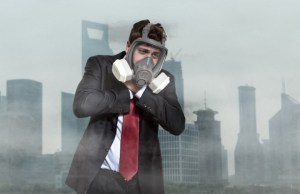Environmental disasters occur with alarming regularity and are still mainly dealt with (if at all) at domestic level. Still very low on the priorities list, environmental crimes enjoying high impunity need to be tackled as a matter of urgency. Focusing on possible ways of creating an effective system of monitoring and sanctioning such behaviours, the conference chaired by MEP Jo Leinen (S&D, Germany) and entitled “Environmental crimes: towards an International Criminal Court” can be summed up as an analysis of the different alternatives at our disposal for this proposed reform.
Three major challenges…
There is a clear need for the international legal system to adapt to the new realities unfolding all around us. In its Rio 20 Resolution (2011), the EP made an important move in raising public awareness on the imperative need to define the basis for an International Environmental Court. As expected, such a complex reform will face several challenges.
Institution of a “new” judicial body

ICC Judge Tarfusser and Professor Abrami both agreed on the existence of two alternatives with regard to the institution of a new judicial body. One option would be the creation of an International Environmental Court. In their view, this could be done either by establishing a new court dealing specifically with environmental crimes, or by extending the jurisdiction of the ICC. Tarfusser considers the modification of the Rome Statute to be the ideal solution as the ICC already has experience in dealing with international crimes. Furthermore, he pleads in favour of one single international jurisdiction dealing with problems of different kinds and would like to move away from the approach that has been adopted recently, i.e. creating a new jurisdiction for every new issue dealt with at an international level. The option of creating a European Environmental Court has also been discussed. Nevertheless, the participants agreed to say that such a judicial body could be a good precedent for a future similar international court, as the aim would be to have a universal jurisdiction.
Defining the concept: environmental crimes
Similarly to the concept of “crime against the humanity” in the article 7 of the Rome statute, the concept of “environmental crime” will have to be defined in great detail. An interesting option in this regard was presented by Argentina’s Court of Appeal General Prosecutor Gomez, namely that of expanding the second part of article 7 (Rome Statute) and thus enlarging the concept of crime against humanity in such a way that it includes crimes against the environment.
International negotiations and the lowest common denominator
According to Mr. Gomez, the complicity of several governments in environmental crimes has clearly been demonstrated. It is therefore obvious that the majority of the world’s leaders lack political will to eliminate this deficit in the international legal system. What is more, as stated by Mr. Gomez, we can expect that once at the negotiation table the compromise they will reach will be disappointing.
Once again, the role of the organised civil society is fundamental. As Mr. Leinen concluded, citizens need to put pressure on their leaders in order to boost the establishment of a legal framework which would contribute to conserving the health of our environment.
For further reading:
Conceptualising and combating transnational environmental crime / Wright, G., in Trends in Organised Crime, vol. 14, issue 4, 2011, pp. 332-346.
The problem of an international criminal law of the environment / Megret, F., in Columbia Journal Environmental Law, vol. 36, issue 2, 2011, pp. 195-254.
The chartering of environmental protection: exploring the boundaries of environmental protection as human right / European Energy and Environmental Protection Review, vol. 17, issue 3, 2008, pp. 165-175.
Library Briefing – Victims of environmental crime, Piotr Bakowski, 2012







